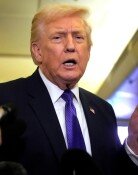Raising Nat`l Security Sense
The naval patrol ship Cheonan sank on the evening of March 26. The incident reminded South Koreans of the harsh reality of living under the threat of North Korea. The Korean War broke out early Sunday morning of June 25, 1950, when many South Korean soldiers took the day off and people slept. If the North is found to have been involved in the sinking, the communist country might have tried to catch the South off guard. South Koreans tend to think another war will not break out.
A civil and military joint investigation team is near the conclusion that Pyongyang was involved in the sinking. Defense Minister Kim Tae-young placed more weight on the possibility of a torpedo attack by telling the parliamentary defense committee Friday, We are analyzing a piece of aluminum obtained from the wreckage of the vessel different from the material of the Cheonan. He added, If an armed protest is necessary, we have the capability to control the air. Chief of Naval Operations Adm. Kim Sung-chan said in the funeral for the 46 sailors killed in the sinking, Well track down those who inflicted such a huge pain on our people and have them face consequences.
Revenge on the Cheonan attacker is necessary, but more important is to raise public awareness of national security. The incident should serve as an opportunity for South Koreans to remember that their country will collapse if they lower their guard against North Korea.
After the end of the Korean War, the North launched provocations such as an attack on South Koreas presidential office of Cheong Wa Dae; infiltration of North Korean guerrillas into Samcheok and Uljin in Gangwon Province; the hacking killings of four U.S. servicemen at the truce village Panmunjom in 1976; the 1987 mid-air bombing of a Korean Air passenger plane; and naval clashes near Yeonpyeong Island in 1999, 2002 and last year. South Koreans were enraged over every provocation and the loss of military and civilian lives, but public anger subsided soon afterwards.
North Korean spy-turned-pastor Kim Shin-jo, who led the Cheong Wa Dae attack in 1968, said, Many South Koreans are naïve when it comes to North Korea. He added, I was enraged to see those who toasted with North Korean leader Kim Jong Il pay their respects to the victims of the Cheonan. The previous two left-leaning governments weakened public awareness of national defense. The late former President Kim Dae-jung said upon his return from Pyongyang after the first inter-Korean summit in 2000, No war will occur on the Korean Peninsula. On the generous assistance given to North Korea without conditions, he called it the cost of peacekeeping. His successor Roh Moo-hyun poured cold water on the South Korean Navys commitment to secure the countrys seas by saying, The Northern Limit Line is not a border.
The South Korean people should remain vigilant against those who try to undermine the public sense of national security. This is the best way to remember the 46 fallen sailors of the Cheonan.



![17년 망명 끝에, 부모 원수 내쫓고 집권[지금, 이 사람]](https://dimg.donga.com/c/138/175/90/1/wps/NEWS/IMAGE/2026/02/18/133376197.3.jpg)



